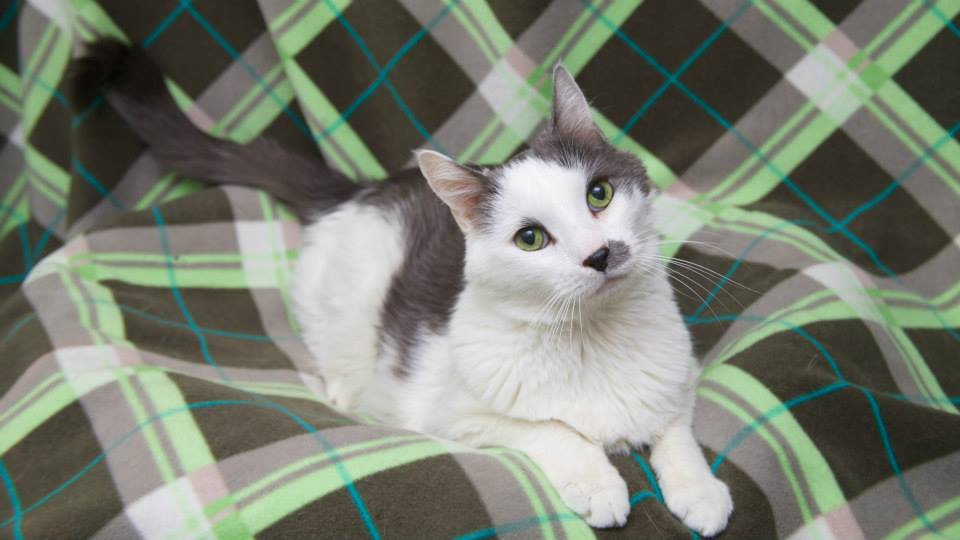
- Your referring veterinarian diagnoses your cat with hyperthyroidism, usually based on a blood test and physical exam findings, and refers you to AVMI for radioiodine therapy.
- You contact AVMI to schedule an appointment for the radioiodine therapy.
- AVMI creates a digital medical record for you and your cat to which copies of any previous medical records information can be attached.
- AVMI will submit a written request to your referring veterinarian for a copy of your pet's medical records including previous laboratory results and diagnostic imaging studies. To ensure you are familiar with the specifics of the communication between your referring veterinarian and AVMI, you will receive a copy of this request. Because we have no way of knowing what specific laboratory, diagnostic imaging or other testing have previously been performed, our request will be a general request for copies of all laboratory and diagnostic imaging results within the last calendar year. Upon receipt of those records we have no way of knowing if those records are comprehensive. Only you and your referring veterinarian know the dates you took your pet to their office and the testing you paid them to perform. As a result it has to be YOUR responsibility to ensure that we receive copies of all pertinent laboratory and diagnostic imaging testing you want us to use to formulate the details of your pet's radioiodine therapy. Toward that end, please consider either bringing a physical copy of your pet's medical records with you or calling to confirm we have received copies of the specific tests you know to have been performed. Delays in receiving copies of previous testing may result in either duplicate charges for repeated testing or delays in treatment and hence a prolonged hospitalization interval.
Pretreatment Recommendations
While not inexpensive, it is well established that because radioiodine therapy actually cures your cat's hyperthyroidism, ultimately it is the least expensive treatment option and therefore a good investment in your cat's long term health. Like most investments, it is typically preceded by a certain amount of "due diligence". At AVMI there are NO absolute pre-radioiodine therapy requirements, as each patient is unique and each client's resources will vary. Never-the-less, there are certain tests the results of which provide a comprehensive understanding of the overall condition of the patient and allow us to ensure a more consistently favorable outcome following radioiodine treatment. These tests include:Laboratory Tests
- CBC
- Serum Chemistry
- Serum Electrolytes
- T4
- FELV & FIV screening
- Urinalysis
Scheduling
The short lived radionuclide we use for the thyroid scintigraphy expires within approximately 4 hours of calibration. To enable us to perform the imaging procedure on the day of admission, we order the radionuclide the day before your appointment. Payment for the isotope is collected when scheduling these appointments. If you need to cancel or reschedule an appointment for radioiodine therapy, please contact our office by 12 noon the day before the appointment and we will be happy to reschedule your appointment or refund your payment. If you fail to update our office by 12 noon the day before the appointment and are unable to keep the appointment, the isotope you purchased will not be available for use on subsequent days and you will forfeit the cost for that isotope.
Patients with contagious diseases
Cats suffering from upper respiratory viruses are often highly contagious to other cats. PLEASE notify us ASAP before hospitalization, if your patient is demonstrating symptoms of an upper respiratory virus (e.g. sneezing, congestion, nasal or ocular discharges) or if your patient has a history of chronic respiratory virus infection. Appropriate isolation of these cat’s is the only way to avoid unnecessary spread of the virus to other feline patients in our care. We have a separate radioiodine isolation ward that can be utilized for this purpose.
Hospitalization
The cats treated with radioiodine usually remain hospitalized for a total of between 3 and 6 days following radioiodine therapy. The duration of the cat’s hospitalization will be determined by the radioiodine dose as well as the cats rate of radioiodine excretion. The date of discharge from the hospital can only be estimated at admission.
Safety precautions
Clients will be advised to follow specific radiation safety precautions for 12 days following discharge. In brief these instructions include: 1.) Adjusting the management of the litter box to avoid putting any radioactive cat urine or feces in the trash. This can be accomplished by the use of a flushable/clump-able cat litter or by holding the clumps from a nonflushable litter for decay. 2.) Limiting time spent in close proximity between the client and their cat.
iCat Webcams
Because both California state and Federal regulations prevent visitation of cats treated with radioiodine during the mandatory hospitalization period, AVMI has installed individual iCat web cams for each of the Snyder Cat Cottages utilized by the hyperthyroid cats treated with radioiodine in our facility. These personal iCat web cams allow interested clients and referring veterinarians to continually observe individual cats hospitalized for radioiodine therapy at our facility.

